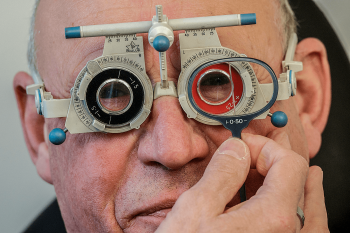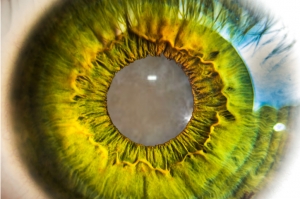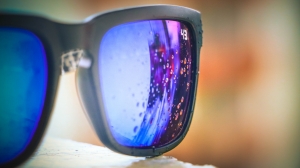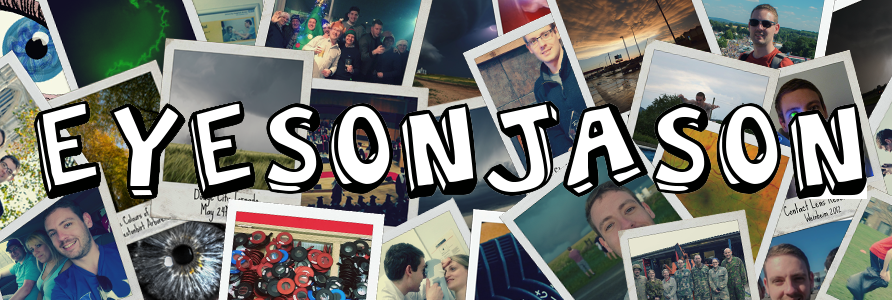Top Tips For Looking After Your Eyes
We only get one pair of eyes and they work extremely hard for you during your life. With sight loss being the one sense that many fear about losing, it is vital that you look after your eyes in every way possible. I share a selection of ways to make sure you look after your eyes and eyesight in the best ways possible.
Regular Eye Examinations
Having an eye test isn't merely just to see if you need glasses, but now considered as an important health examination that looks at the health of your eye, as well as your general health. It is recommended that you have your eyes tested at least once every 2 years, although in some cases, such if you are diabetic or have a family history of glaucoma, more regular check-ups are advised.

Regular eye examinations can help keep your eyes working
optimally for longer - as well as detect early health problems
In the UK, if you are under 16, under 19 and in full time education, over 60, have been precribed complex lenses, are diabetic, have glaucoma or are a first degree relative of someone with glaucoma, you may be eligible for an NHS-funded eye examination. Additionally, if you are in receipt of a selection of financial benefits, you may also be eligible for an NHS-funded eye examination, with help towards the cost of any required spectacles. I advise visiting the NHS website for more categories and details, or contacting you local optician.
Eat Healthily
The right diet is key when looking after your eye health. A diet that is rich in fruit, vegetables and protein can really make a difference in regulating your eye health. Dark green leafy vegetables (such as kale and spinach) helps keep the retina healthy, with flaxseed oil and omega essential fatty-acids helping regulate a healthy tear film, reducing the feeling of a dry eye.

A healthy diet leads to healthy eyes
Nutrition and the eye is a huge area to cover and will be the focus of future blog posts. Drop me a like on my facebook pages (OptometryTweet and eyesonjason) to be notified of the latest posts.
Sun Protection
The sun is the biggest source of ultraviolet (UV) light that we encounter. We all think of sun cream to protect our skin but how do you protect your eyes? UV causes changes to the conjunctiva, the cornea and the crystalline lens, leading to raised yellow regions around the white of the eye and also speeding up the development of cataracts. UV can also lead to skin cancers, so I advise use of suncream on the face and around the eyelids (just don't get it in your eyes - you won't be thanking me for that!)

UV light can lead to cataract formation
Protecting the eyes from UV light is relatively easy - invest in a good pair of large-framed sunglasses that have UV filters. These large UV-blocking lenses will keep the damaging rays away from the sensitive skin around your eyes and prevent them from damaging your eyes themselves. Be warned, look out for the CE mark and check to make sure they really are UV blocking - many online stores or marketstalls do not meet the requirement to pass trading standards and you may be putting your eyes at risk!

A good pair of UV-filtering sunglasses can help protect
your eyes from the harmful effects of ultraviolet light
If you are a contact lens wearer, there are some contact lenses that contain a UV-block. Talk with your optometrist or contact lens optician to discuss your contact lens and UV needs for further information.
Don't Smoke!
Smoking has been proven to damage your health in many ways, as well as cause irreversible sight-loss. The chemicals absorbed through smoking greatly accelerate the progression of cataracts and put your retina under great strain, leading to an increased risk of macular degeneration (a severe form of sight loss). You are also much more likely to have a contact lens problem if you smoke, which again may lead to a painful and sight threatening condition.

Smoking can drastically increase your chances of
going blind through cataracts and macular degeneration
Other health problems can arise through smoking, such as strokes and heart disease. These conditions can also seriously affect your sight, often leading to longstanding or peramanent blindness. For more information on smoking and vision, see my previous blog, Smoking and Your Vision.
Safety First
Make sure to consider your eye health when doing DIY or any other hazardous tasks. Safety lenses and frames can make a difference to being able to see your finished creation and a trip to the emergency room. Additionally, if you play a projectile sport, such as squash or tennis, really consider safety goggles. The damage that a squash ball can do to your eye can be horrific (I've seen the damage...it isn't pleasant!). Your eyes do a really good job at keeping themselves out of harms way, but taking a few precautions mean you can really keep them safe!

Wear protective eyewear when doing it yourself
Regular Breaks
It might not be something that causes a lot of harm to the eyes, but the way that computers, phones and a whole host of other gadgets can make your eyes feel if you use them too long makes this point worth a mention. Prolonged use of a screen (or even a book) can result in the eye muscles responsible for near focus going into a spasm and as such give us blurry vision for some time after. This near concentration can also give us eyestrain and some headaches. In order to give your eyes a break, optometrists recommend the 20-20-20 Rule: every 20 minutes, look up at something about 20 feet away for 20 seconds. This gives the eyes a chance to recover and you get a bit of a break too!

Every 20 minutes, take a 20 second break and
look at something 20 feet away
We don't just look at a screen, we stare at it. Our blinking rate drops dramatically, meaning our eyes are not having fresh tears over their surface to help keep them well lubricated. This leads to feelings of dry eye and can make them feel very irritiable. Make a conscious effort to blink where you can - your eyes will appreciate it! If dry eye is a continual problem, discuss with your optometrist about the best way to combat the symptoms.
The above list is just a selection of general tips on how to look after your eyes, but if you wish to find out more, book an appointment to discuss your specific eye concerns with your local optometrist.
Would you like to feature this blog post on your website? If so, please contact me for licensing - I can be contacted on this page

Make A Comment
Comments (0)